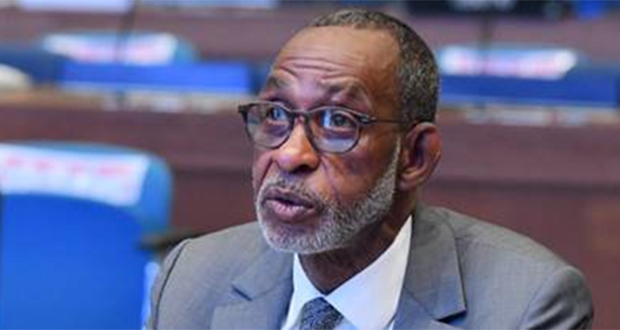Publicité
COM2021 experts’ meeting takes stock of RCM-Africa’s achievements
Par
Partager cet article
COM2021 experts’ meeting takes stock of RCM-Africa’s achievements

Addis Ababa, Ethiopia, March 19, 2021 (ECA) - The 39th ECA Committee of Experts of the Conference of African Ministers of Finance, Planning and Economic Development on Friday discussed the Regional Coordination Mechanism of the UN agencies working in Africa’s (RCM-Africa) work in supporting the African Union’s programmes, in particular the need to accelerate implementation of the global 2030 Agenda and Africa’s Agenda 2063.
Member States’ representatives applauded RCM-Africa efforts and urged UN agencies to work seamlessly together and deliver as one in support of the AU and its New Partnership for Africa’s Development (NEPAD) programme to ensure system-wide coherence, coordination and cooperation at all levels.
They were responding to a report presented by the Economic Commission for Africa’s Chief of the UN System-wide Coherence and Quality Assurance Section in the ECA’s Strategic Planning, Oversight and Results Division, Demba Diarra.
The report provided delegates the opportunity to take stock of RCM-Africa’s achievements, address its challenges, and suggest ways to further improve UN support to the AU and its organs.
Mr. Diarra said RCM-Africa and the sub-regional coordination mechanisms (SRCM) had jointly adopted a work plan for their programming in support of the AU’s developmental agenda.
He said in 2020 for example, RCM-Africa had in a special session deliberated on accelerating the achievement of the 2030 Agenda and Agenda 2063 goals in the context of the UN Decade of Action and provided a platform for rich exchanges on the AU theme for that year: Silencing the guns: creating conducive conditions for Africa’s development.
Mr. Diarra said major outcomes of the RCM-Africa meetings in the last two years were on the need for Africa, working with its partners, to do more to achieve sustainable and inclusive economic growth, industry, trade, agriculture and agro-processing, regional integration for Africa’s development; and infrastructure development.
The mechanism also worked on Africa’s human capital development, health, nutrition, science, technology and innovation; labour, employment creation, social protection, migration and mobility; gender equality, women and youth empowerment; humanitarian issues and disaster risk management; environment, urbanization and population; advocacy, information, communications and culture; and governance, peace and security.
The report gave an account of the work of RCM-Africa for a two-year period from February 2019 to February 2021, including interim deliverables during the UN reforms. Mr. Diarra said its key highlights were the joint RCM clusters, sub-regional initiatives, challenges, lessons learned and opportunities over the period. The report focused on the priorities of the AU.
The sub-regional initiatives undertaken during the period include the UN Integrated Strategy for the Sahel; development and implementation of economic diversification strategies for inclusive and sustainable structural transformation by central African region; formulating the continental strategy and drafting of statutes for the African Tourism Organization; studied and held various consultations on the role of SMEs in the industrialization process in Southern African region; development of policy tools to assist SADC in its plans to improve the capacity of SMEs, within the context of the regional industrialization agenda by Eastern and Southern African region.
The mechanism was also involved in initiatives to accelerate the implementation of the 2030 Agenda, which led to the adoption of a regional road map for the period 2018–2019, platforms to support the voluntary national review process, accelerating policy support and the rapid integrated analysis tool by North African region. It also supported RECs to mobilize UN institutions around common interests, such as monitoring progress in implementing the Africa Programme on Accelerated Improvement of Civil Registration and Vital Statistics and the Sahel 2043 prospective study by the West African region.
Despite its successes the mechanism had challenges, said Mr. Diarra.
“The main challenges that RCM-Africa faced during the two-year period of its work, include lack of clear strategic leadership, weak implementation of joint work plans, absence of an operational results-based M&E framework, lack of dedicated resources, weak information-sharing, coordination and collaboration, and absence of clearly defined roles and responsibilities,” he said.
To beat these challenges, RCM-Africa proposes high-ranking officials from both the AU and the UN run the mechanism, involving Resident Coordinators for implementation at country level with RECs as the building blocks of the AU for greater impact.
Publicité
Les plus récents






